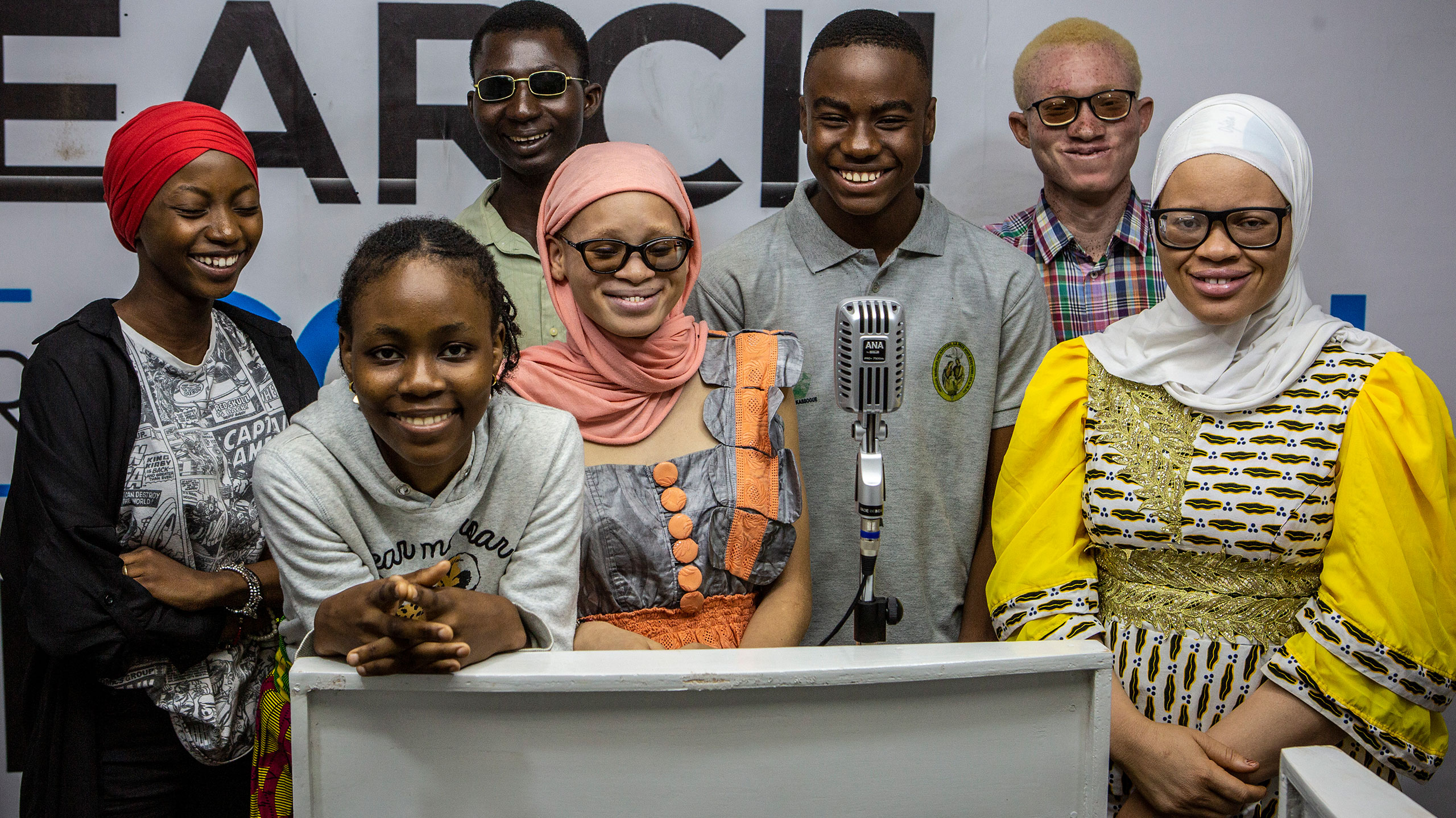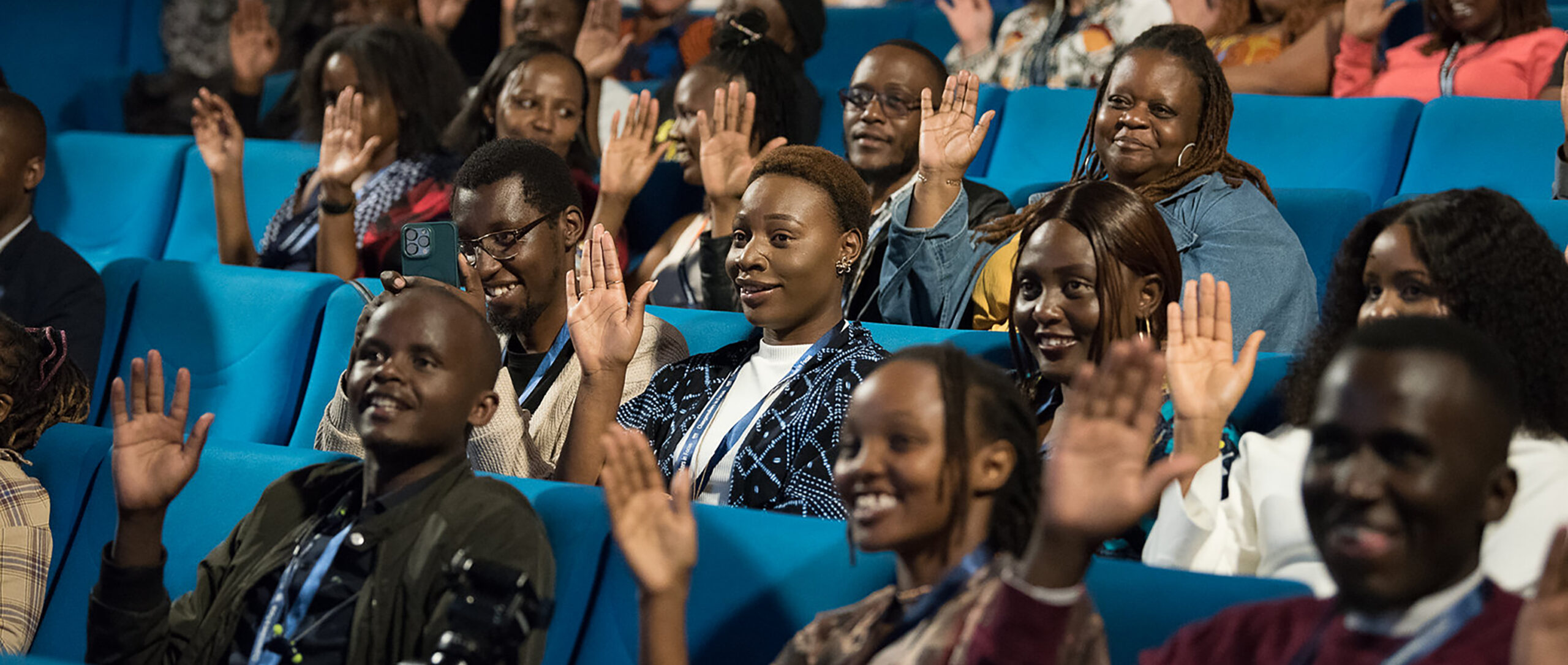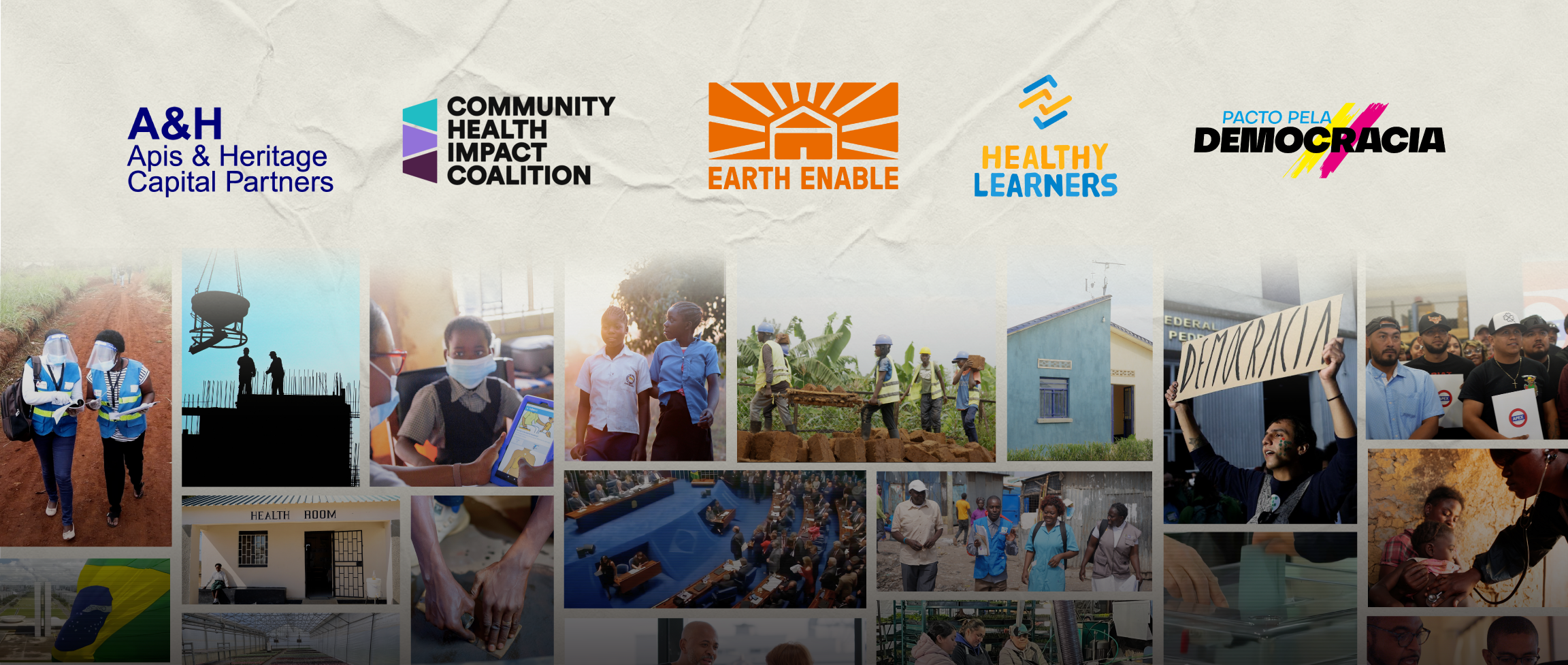How U.S. Social Fractures May Benefit from Far-Flung Conflict Zone Lessons
In March 2022, Search for Common Ground (Skoll Awardee 2006), will celebrate its 40th year as a peacebuilding organization, having amassed a long track record of transformational impact in conflict zones around the world, while sharpening a focus on the U.S. and the deep divisions that threaten its stability.
John Marks, who founded Search for Common Ground (SFCG) in the wake of the Vietnam War and the Watergate era, was a leading anti-war activist and investigative journalist. Towards the beginning of the 1980s, at the height of the Cold War, he had an epiphany: he had dedicated his life to adversarial advocacy aimed at tearing down the systems he opposed. He began to realize that tearing down the old is not the same thing as building the new. He saw the need for an organization that would do just that: bring opposing sides together to build new systems that would benefit all.
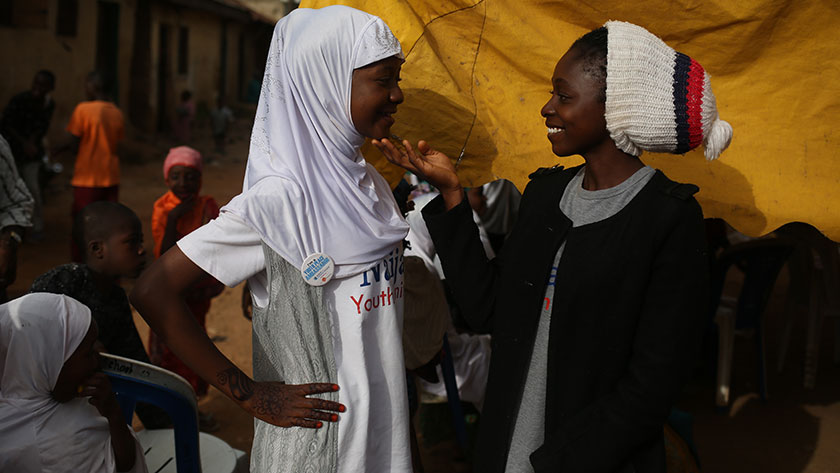
From the West Bank to Macedonia, from Burundi to Jakarta, SFCG has pioneered an iterative, tremendously creative conflict transformation approach centered on a simple idea: we all ‘win’ when the focus is on what we want to achieve—not what divides us. In the process, it has helped give rise to the field of practice now known as peacebuilding.
Shamil Idriss joined SFCG some three decades ago as a promising unpaid intern and since 2014 has led the organization into its present chapter of ambitious global activity with offices in 30 countries, staffed almost entirely by people from the local communities. He joined the Skoll staff virtually last week to share more about where SFCG is headed.
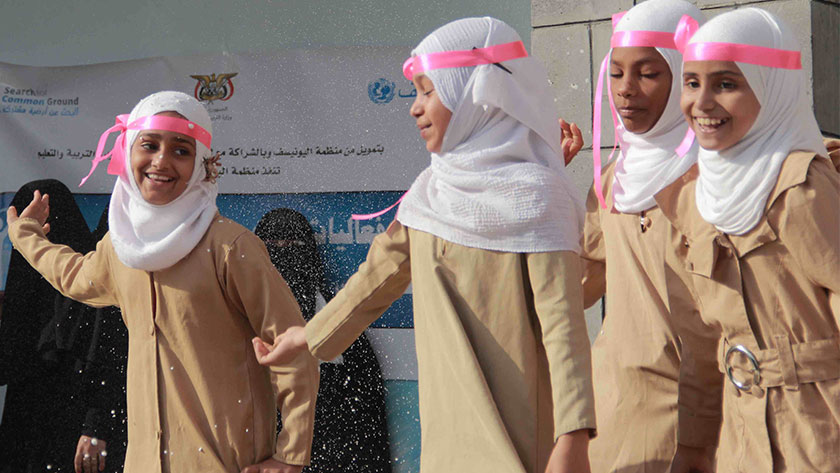
“Just like a military that uses both air forces and ground forces to perpetrate war, we leverage what you could call air forces and ground forces to transform conflict and build peace,” said Idriss. The SFCG air force is media: it produces hundreds of hours a year of diverse media content, digital content, scripted television series, soap operas, reality TV, radio, and print—whatever format is appropriate and effective in the local context.
SFCG’s Studio Ijambo radio programs in Burundi in the early nineties, for example, were groundbreaking, bringing together Hutus and Tutsis in collaborative reporting and storytelling while bloody conflict raged. A leading U.S. diplomat later credited Studio Ijambo for helping to prevent genocide. SFCG launched an inter-ethnic bilingual kindergarten during the height of the Balkans conflict in Macedonia, and over the course of five years it gained the attention of the Ministry of Education. The Ministry eventually took over the program and spread it nationwide – changing the basis of ethnic relations for all future generations and highlighting the power of linking grassroots peacebuilding to official policy-making.
Every air force needs the support of ground forces as well. “Our experience is that the right kind of media formats can always go very broad, but they don’t tend to go very deep,” said Idriss. Local, multiethnic, multi-sectarian teams—who themselves represent the dividing lines in a conflict—lead the on-the-ground outreach and mobilization efforts, the backbone of peacebuilding work. “We do this not simply to reconcile disputes or even end violence in a particular community, but really to trigger a shift in how societies deal with difference, with results that can improve or save the lives of millions of people.”
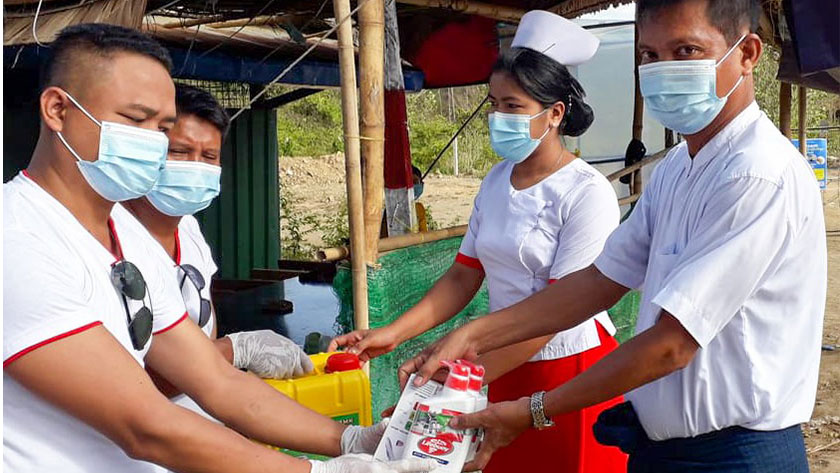
Idriss likes to use the familiar metaphor of two people sitting on opposite sides of the table. “When successful, this work helps people shift from sitting across a table seeing each other as the problem, to sitting side-by-side, facing a common problem or a shared aspiration together.” SFCG’s methodology, the Common Ground Approach, drives change in three stages—Humanize; Mobilize; Systematize—to achieve change that endures at scale.
The old trope that every crisis is an opportunity, is never truer than in a conflict setting. In those fractured moments, new possibilities and pathways emerge. “Look at Afghanistan today,” he said. “One of the reasons we’ve insisted among our peers that you’ve got to remain engaged in the country and engage directly with all Afghans—from community activists to Taliban officials—is because these fluid moments are when new relationships are being formed, new ways of doing things are getting established, negotiations can be had. Some of the biggest leaps forward that our teams have achieved have come in the wake of crises.”
Conflict, Idriss reminded us, is a global issue—not just a problem of so-called developing countries. “The U.S. is the belly of the beast in terms of adversarial approaches to conflict because of the outsized impact that our policies and popular culture have in the world,” he said. “But we always struggled to generate enough interest, concern, and serious investment to do the kind of top down, bottom up, long-term strategic conflict transformation here. January 6th changed all that in terms of Americans’ awareness and concern and thus what has become possible.”
We’ve shifted from a country that disagrees about issues, to a country where a staggeringly large proportion of us see each other as a problem or a threat, steeped in a media environment that erodes trust and amplifies and accelerates division, says Idriss. The U.S., he says, has never needed the Common Ground Approach more urgently.
When John Marks founded the organization, he planned to focus evenly on conflicts in the U.S. and those abroad. Within two decades, the bulk of its work had shifted abroad. Now the scales are tipping back in the other direction. The newly launched Common Ground USA has a dedicated staff with a mission to address the roots of the conflicts that divide Americans. Working with diverse partners, it takes a three-pronged approach: prevent political violence, mobilize youth activism, and foster a healthier media ecosystem. “There’s a recognition finally, more so than at any other time in my lifetime, and certainly in my work career, that conflict in the U.S. is something we really have to tackle.”
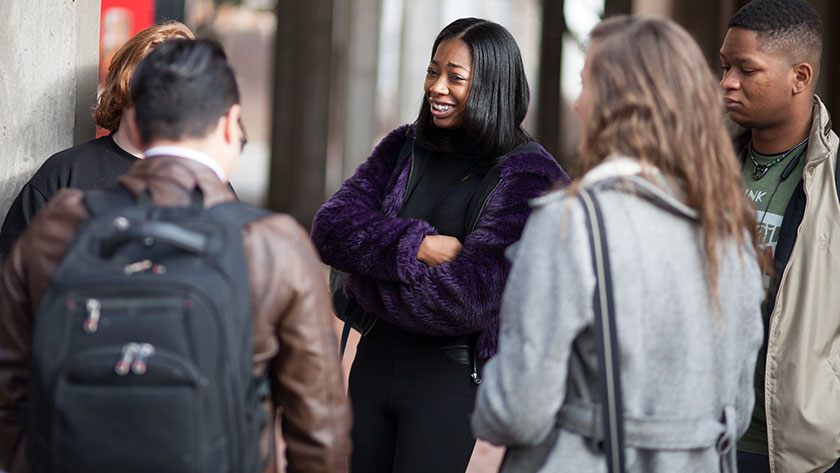
Some of its earliest efforts include an interfaith community-based approach to identify and help to prevent radicalization and violent extremism in Tarrant County, Texas; a new model for orienting diverse students onto college campuses through series of facilitated, virtual small group dialogues piloted with such success at SUNY-Potsdam that it was made mandatory for all incoming students in 2021, and a collaboration with the Center for Humane Technology to launch a Council on Technology & Social Cohesion aimed at facilitating partnerships between the tech sector and peacebuilding community to test and replicate interventions that reduce the impact of disinformation and increase social cohesion.
“The core insight of our organization is that conflict is inevitable but violence is not,” said Idriss. “Indeed, handled constructively and non-violently, conflict is actually among the most generative and creative forces in the world.”
banner image: The young journalists of Search for Common Ground’s radio program Youth Talk in Mali
Want more stories of transformational social change? Sign up for our monthly newsletter.
